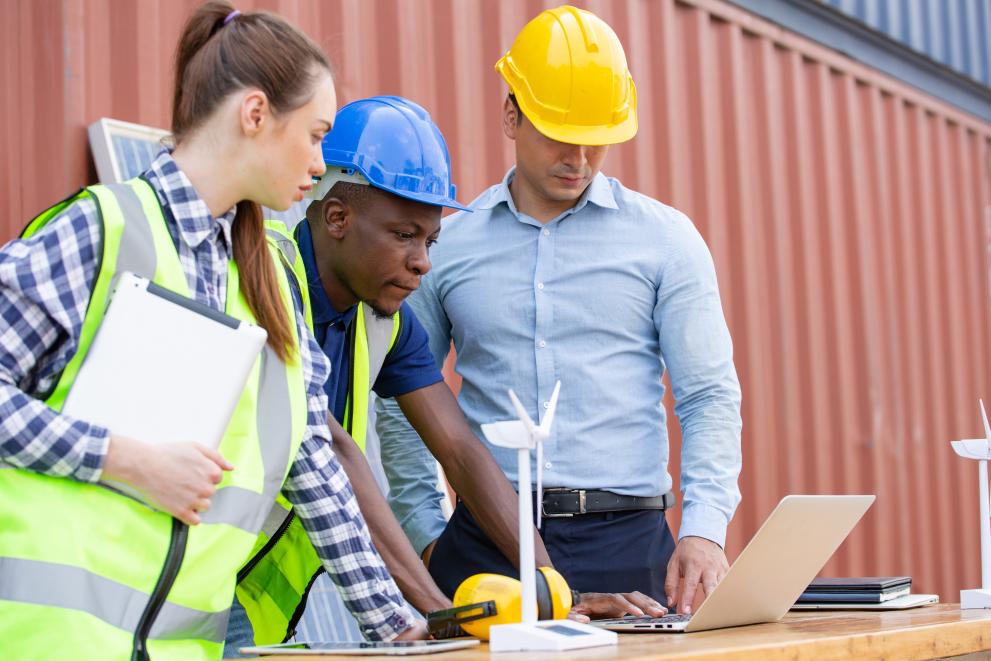
In a world crying out for sustainable energy solutions, diversity, equity and inclusion (DEI) still represent an untapped potential. Why are those notions essential to a just energy transition? How can organisations promote these values to innovate and prosper?
Embracing diversity: more than a trend
The energy sector, a pivotal player in greenhouse gas emissions and historically suffering from a lack of diversity (with women representing only 22% of its workforce), faces significant challenges. In this context, diversity, equity, and inclusion (DEI) become critical for a successful and equitable energy transition. A diverse workforce fosters innovative, effective problem-solving and better solution adoption. This is echoed by the International Energy Agency (IEA), which stresses that DEI is key to addressing the urgent need for universal energy access by 2030, as highlighted in the joint IEA-IRENA-World Bank-WHO report on SDG7. However, the energy sector is currently lagging in implementing effective DEI initiatives, often limiting them to anti-discrimination measures.
Intersectionality: a path to energy justice
Beyond gender-based discrimination, the energy sector must embrace intersectionality – the recognition that various social categorisations like class, race, ethnicity, sexual orientation, and others intersect, leading to complex forms of discrimination. Acknowledging this is crucial for designing targeted, inclusive, and equitable solutions. As demonstrated by EU projects like EmpowerMed, CEES, Sun4All or PowerUp, addressing intersectionality is key to combating energy poverty and promoting energy justice, ensuring the energy transition is inclusive and leaves no one behind.
Inclusive practices in energy organisations
For the energy sector to mirror the diversity of the communities it serves, knowledge building and bias combatting are essential. The European Commission’s Equality Platform for the Energy Sector or the European Solar Sector’s Diversity Award are examples of initiatives promoting equality. Organisations must foster inclusive cultures where diversity is valued and tokenism is avoided. This involves fair hiring practices, ongoing education, awareness programs, and mentorship opportunities. Leaders must be proactive in creating and adapting inclusive policies.
Diversity: the fifth driver of energy transition
The European Sustainable Energy Week has been instrumental in bringing forward the four drivers of the energy transition: democratisation, decentralisation, digitalisation, and decarbonisation. Joshua Atkins, the founder of the NGO “Pride in Energy” which advocates for LGBTQI+ rights in the sector, in the Energ’ Ethic podcast, suggests adding a fifth 'D': Diversity. Valuing diverse experiences and perspectives is crucial for the cohesive and effective advancement of the energy sector.
Conclusion: shaping a sustainable future
In conclusion, integrating diversity, equity, and inclusion in the energy sector is not only a moral imperative but also a strategic necessity. It's imperative for energy organisations to actively incorporate these values into their strategies, fostering a culture where diversity is celebrated, equity pursued, and inclusion is the standard. This approach will pave the way for a more sustainable and equitable future in energy.
Recommended links
- European Institute for Gender Equality
- EU Platform of Diversity Charters
- European Network Against Racism (ENAR)
About the author
Marine Cornelis is behind Next Energy Consumer, an international policy consultancy at the forefront of the social aspects of energy and climate transitions. Marine is passionate about empowering people and communities as we move towards a greener, more sustainable future. Her work specialises to under-represented population segments, such as women and ethnic minorities. Through her work, she bridges civil society, scientific communities, businesses and policymakers. Her Energ’Ethic podcast highlights the inspiring individuals driving worldwide improvement in energy and climate fronts. Her vision has earned her recognition as one of the first ambassadors of the European Climate Pact. She works in Europe, Africa, Latin America, and the Middle East.
Disclaimer: This article is a contribution from a partner. All rights reserved.
Neither the European Commission nor any person acting on behalf of the Commission is responsible for the use that might be made of the information in the article. The opinions expressed are those of the author(s) only and should not be considered as representative of the European Commission’s official position.
Details
- Publication date
- 8 February 2024
- Author
- European Climate, Infrastructure and Environment Executive Agency
